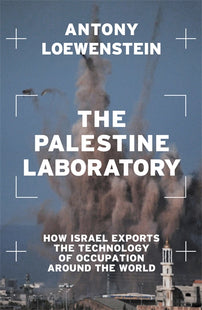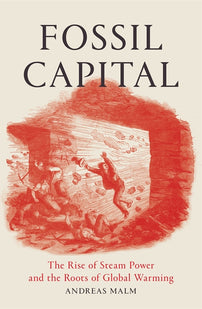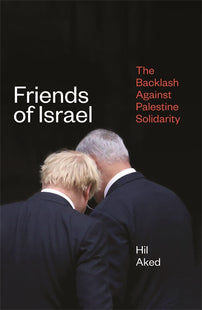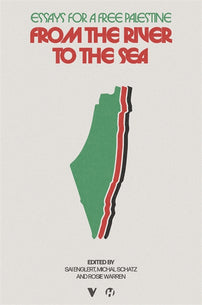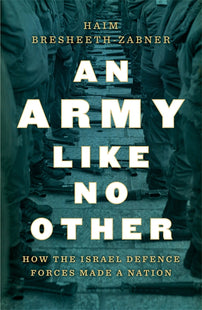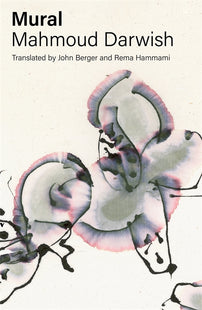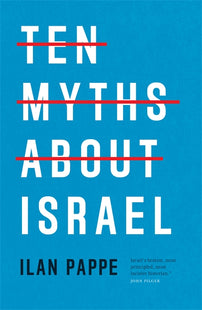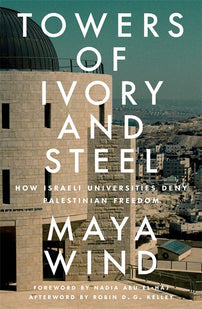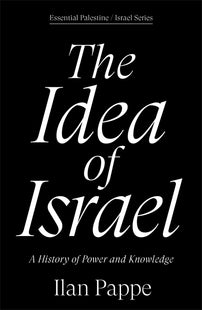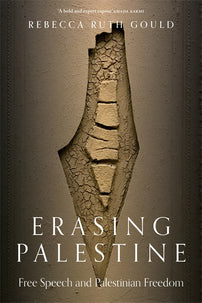After the Flood: A response to Andreas Malm
In response to Andreas Malm's recent essay, Matan Kaminer argues that the global solidarity movement must engage with the diversity of Palestinian politics.

As Andreas Malm has forcefully demonstrated, the forces responsible for the destruction of Gaza are the same as those responsible for the climate catastrophe. But it does not follow that the forces currently leading the armed Palestinian resistance are also committed to the struggle for a shared and liveable Earth. Matan Kaminer argues that the global solidarity movement must engage with the diversity of Palestinian politics.
Andreas Malm’s April essay for the Verso Blog executes an efficient historical tour of the Eastern Mediterranean, demonstrating that the forces responsible for the current annihilation of Gaza are the same ones to blame for the destruction of Derna, the repeated chastisements of Beirut, and indeed the spoliation of the Earth itself as a humanly, liveable habitat. The piece neatly blows up the powder magazines of the “Zionist lobby” theory, which attempts to posit a contradiction between the active participation of the US in the hellfire Israel is raining on Gaza’s population and the former’s national interest. Connecting economic, ideological, and geopolitical dots, Malm makes a convincing and consequential case that opposition to Israel’s ongoing crimes in the Gaza Strip and West Bank should not be separated from either the last-ditch fight to avert the worst variants of climate catastrophe or from principled struggle against the empire headquartered in Washington DC.
But from the necessary unity of these three struggles, it does not necessarily follow – as Malm’s thundering coda implies – that the forces arrayed against the destruction of Palestine are all leaders, or even potential partners, in the struggle for a shared and inhabitable Earth. Malm plausibly argues that “Zionist lobby” theorists are making things easy for themselves by pretending that (as one wolf-in-sheep’s-clothing outfit infamously claimed) “if Americans knew” what their tax dollars were being used for, they would all rise up against the continued subsidization of the Yankee outpost on the Mediterranean. But is Malm himself not underestimating the direness of the situation when he fails to note that the forces who unleashed the “Al-Aqsa Flood” are quite oblivious to the literal flood which is on its way to inundating Gaza, much as it inundated Derna?
Malm does not make this mistake in the enlightening historical discussion which opens the essay. He clarifies that Muhammad Ali, the rebellious Ottoman viceroy who challenged Britain’s Mediterranean hegemony in the early nineteenth century, was no friend of the masses or of the natural environment. Conscious of the prowess wielded by the British in both the military and economic spheres thanks to their possession of steam engines, slave-grown cotton, and coal reserves, Muhammad Ali drove Lebanese peasants into mines and their counterparts on the Nile into militarized cotton plantations and textile factories in an early and impressively ruthless attempt at state-led industrialization. It was this, rather than any principled objection to fossil-fueled capitalist modernity on his part, which mobilized the British to bring Muhammad Ali to heel and begin laying plans for a “little loyal Jewish Ulster” in the Holy Land, decades before Zionism would take hold among Europe’s Jews.
[book-strip index="1"]
Muhammad Ali’s regime may be one of the first instances of a phenomenon with which the left has had many chances to grapple, without ever managing to theorize it adequately: “counter-systemic” movements which mobilize the justified rage of subaltern classes and nations to fight the global hegemon without seeking, or despite giving up the search, for an alternative to the capitalist exploitation of women, nature and colonies. Examples abound, from Al-Qaeda to – according to some – the Soviet Union itself under Stalin and his successors. Given the role played by demands to “denounce Hamas” in the McCarthyite attack on Palestine solidarity in many parts of the West, the impulse to take a clear stance in support of the Palestinians’ right to resist is not only understandable but easy for any leftist to empathize with. However, analysis which papers over the complexities of Palestinian politics runs the risk of forfeiting its opportunity to make an intellectual contribution to the struggle.
Malm quotes from the lucid analysis of Zionism’s role as an imperial proxy in the documents of Islamic Jihad, Hamas’ junior partner in ruling the Gaza Strip and in undertaking Toufan Al-Aqsa. He does not cite the puerile antisemitism of the infamous Hamas Covenant, perhaps because this document has arguably been superseded by the General Principles of 2017 – a much more palatable, if hardly revolutionary document. More problematic is Malm’s neglect of Hamas’s complicity in counter-systemic forms of fossil capitalism. Mirroring its rival, the Abrahamic alliance, the regional “axis of resistance” is of course funded by Iranian petroleum profits. Its global sponsors, Russia and the more distant China, base their own unholy symbiosis on fossil fuel extraction in the former and runaway, export-oriented industrial production in the latter. Given the rank hypocrisy of the global North with regard to carbon emissions in the South, it certainly makes sense to demand that if any new fossil-fuel exploitation is to take place in the Mediterranean, then Palestinians should receive their fair share. But as Malm has eloquently argued for years, all new exploitation needs to stop – full stop. Do we have any reason to doubt that Gaza’s rulers would, given the chance, eagerly join their neighbours in the bonanza of unsustainable extraction – just as Hizballah did when it gave the green light to the deal dividing up gas fields along Lebanon and Israel’s maritime border? Likewise, how can we ignore the role played by copious fossil-fuel money from Qatar, transferred over the last two decades with Israeli approval, in stabilizing Hamas’ unelected rule over Gaza?
These considerations suggest that it may be worthwhile returning to the crusty Cold War leftist construct of “critical support.” Pace the remarks of some leftists,[1] solidarity with Palestinians – up to and including support for armed struggle – does not necessarily translate into blanket approval for anything that any Palestinian does in the name of liberation. Malm contends that Israel would not have reacted any less murderously to the October attack if Hamas had concentrated purely on military targets. That may well be so; there is no way of knowing, of course. But why on Earth should that be the main criterion in our evaluation of the decision to target civilians? What message, we might rather ask, is delivered to the masses of the Global South by the execution and abduction of dozens of migrants from Thailand, Nepal, Tanzania, Eritrea, Darfur, and China? What are women and youth in Palestine and elsewhere to learn from the tacit condonement – through denial, minimization or whataboutery – of the murder of children and old people and of rape?[2] And what effect could the Saturday-morning rampage through the impoverished neighbourhoods of Sderot and Ofakim possibly have except to drive the Mizrahi-Jewish working class – a critical component in any decolonial coalition – ever deeper into the arms of Israel’s far right? If Toufan Al-Aqsa is to become a model for the counter-systemic insurgencies of the future – as it certainly might, and as Malm seems to believe that it should – what are the implications for the possibility of constructing a movement that is not only against US imperialism but also for the establishment of a global, anti-racist, liberationist eco-socialism?
[book-strip index="2"]
Finally, by rushing to proclaim that we “stand with the resistance” – meaning Hamas – are we not foreclosing the possibility that Palestinians themselves would favour alternative methods if asked? I am not disputing the current popularity of Hamas and its military strategy, which is unmistakable if not at all universal among Palestinians.[3] Both apparently seem to be most favored in the West Bank, which groans under a systematic program of ethnic cleansing carried out by settler militias and the IDF while the Fatah-controlled Palestinian Authority stands by. It is lower, but still high, in the Gaza Strip itself, whose residents are paying an unimaginable price for that resistance. Among the two million Palestinian citizens of Israel, whose tenacious struggle for sumoud has been rendered considerably more difficult by the accelerated fascisation of Israeli society since the attacks, it is lower yet, and the leadership of Israel’s Democratic Front for Peace and Equality – the largest Palestinian-dominated left party anywhere – has also clearly condemned the targeting of civilians. And while I have not seen any polling which attempts to disaggregate backing for armed resistance or for the October 7 attacks in general from support for violence against civilians in particular, there is strong journalistic evidence that many Palestinians feel revolted by the atrocities committed on that day.
One quantitative indication of the thirst for another way among Palestinians is the enduring popularity of Marwan Barghouti. In public opinion polls both before and after October, Hamas-identified candidates handily beat PA head Mahmoud Abbas and his proxies in any two-way race, but when Barghouti’s candidacy is considered, he handily trounces both. Granted, Barghouti is something of a political cipher, as he has been imprisoned essentially incommunicado for over twenty years. But it is plausible to interpret support for his hypothetical candidacy as indicating, on the one hand, a vindication of armed struggle, and on the other, a rejection of Hamas’ messianism, authoritarianism, and sectarian manipulations. It would be stretching things to label Barghouti a symbol for feminism, socialism, or the fight against climate catastrophe, but it is perhaps worth mentioning that all these causes – to which both Hamas and Fatah are indifferent at best – have strong, organic and organised support among Palestinians.
[book-strip index="3"]
No reader of the Verso Blog needs yet another reminder of the cataclysmic defeat that the left has suffered across the globe since the 1970s; but there it is, yet again, in all its depressing ugliness. The fact that the Palestinian resistance is not being led by a secular, democratic force such as the PFLP, but by an authoritarian movement whose geopolitics are counter-systemic but neither internationalist nor revolutionary, is one more unpleasant reminder of the fact. It is no concession to Zionism or imperialism to maintain a critical distance towards that leadership while remaining unwavering in our support for Palestinian liberation. In fact, it is our duty to the still-possible future in which the defence of the Earth and the defence of Palestine are fused unbreakably together.
Andreas Malm's essay, The Destruction of Palestine Is the Destruction of the Earth, was published on April 8, 2024. You can find all his books here, including How to Blow Up a Pipeline. See our Free Palestine reading here.
[1] I am thinking in particular of Jodi Dean’s statement, also on the Verso Blog, that “Hamas is supported by the entirety of the organized Palestinian left.” It should go without saying that neither this erroneous statement nor anything else she has said or done can justify Dean’s suspension from teaching duties at Hobart and William Smith Colleges. Among its other pernicious effects, McCarthyistic repression of the kind she has suffered is injurious to open and serious left debate.
[2] Here, again, the responsible leftist reaction to the amplification of lies and exaggerations about Hamas atrocities is not blanket denial, but renewed commitment to critical investigation of the truth.
[3] Unless otherwise indicated, my claims about Palestinian public opinion derive from the findings of this poll, conducted in early March by the Palestinian Centre for Policy and Survey Research.
[book-strip index="4"]
